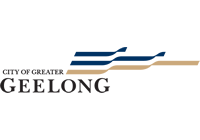Education is an essential means of building the knowledge and skill levels of the labour force, which is a key factor in achieving future economic and social development.
The level of educational attainment for the City of Greater Geelong's resident workforce relates to a number of factors including:
- The age structure of the resident workforce;
- The professional or social ambitions of people to obtain qualifications (that is, to seek education and retraining);
- The opportunities afforded to people to continue studying beyond compulsory schooling, and;
- The knowledge and skill requirements of the local industries.
Qualification should be looked at in conjunction with Income , Occupations and Field of qualification for a clearer picture of the knowledge and skill level of the City of Greater Geelong's local resident workers.
When comparing the Qualifications of local resident worker with local workers, Qualifications statistics indicates whether an economy draws on the skills offered by its own residents or on a different set of skills imported from elsewhere in the region.
Data source
Australian Bureau of Statistics (ABS) – Census 2016 and 2021 – by usual residence
Current industry:
Current benchmark:
Sex:
| Resident workers qualifications | |||||||||
|---|---|---|---|---|---|---|---|---|---|
| City of Greater Geelong - Persons | 2021 | 2016 | Change | ||||||
| Qualification level | Number | % | Victoria | Number | % | Victoria | 2016 - 2021 | ||
| Bachelor or Higher degree | 42,194 | 32.6 | 39.0 | 27,233 | 26.3 | 33.3 | +14,961 | ||
| Advanced Diploma or Diploma | 15,598 | 12.0 | 11.5 | 12,287 | 11.9 | 11.5 | +3,311 | ||
| Certificate I and II Level | 1,433 | 1.1 | 1.0 | 1,223 | 1.2 | 1.0 | +210 | ||
| Certificate III & IV Level | 28,699 | 22.1 | 17.1 | 24,087 | 23.3 | 18.1 | +4,612 | ||
| Certificate Level, nfd | 1,819 | 1.4 | 1.5 | 1,889 | 1.8 | 1.8 | -70 | ||
| No qualification | 37,416 | 28.9 | 27.8 | 34,118 | 32.9 | 31.5 | +3,298 | ||
| Inadequately described or not stated | 2,435 | 1.9 | 2.2 | 2,742 | 2.6 | 2.8 | -307 | ||
| Total Persons | 129,594 | 100.0 | 100.0 | 103,579 | 100.0 | 100.0 | +26,015 | ||
Source: Australian Bureau of Statistics, Census of Population and Housing 2016 and 2021. Compiled and presented by .id (informed decisions) | |||||||||


Dominant groups
Analysis of the qualifications of the resident workers (All industries) in the City of Greater Geelong in 2021 compared to Victoria shows that there was a higher proportion of resident holding formal qualifications (Bachelor or higher degree; Advanced Diploma or Diploma; or Vocational qualifications), and a lower proportion of males with no formal qualifications.
Overall, 69.2% of the resident workers (All industries) held educational qualifications, and 28.9% had no qualifications, compared with 70.1% and 27.8% respectively for Victoria.
The major differences between qualifications held by the resident workers (All industries) of the City of Greater Geelong and (Victoria) were:
- A smaller percentage of resident workers (All industries) with Bachelor or Higher degree (32.6% compared to 39.0%)
- A larger percentage of resident workers (All industries) with Certificate III & IV Level (22.1% compared to 17.1%)
- A larger percentage of resident workers (All industries) with No qualification (28.9% compared to 27.8%)
Emerging groups
The largest changes in the qualifications held by the resident workers (All industries) in the City of Greater Geelong between 2016 and 2021 were:
- Bachelor or Higher degree (+14,961 persons)
- Certificate III & IV Level (+4,612 persons)
- Advanced Diploma or Diploma (+3,311 persons)
- No qualification (+3,298 persons)
